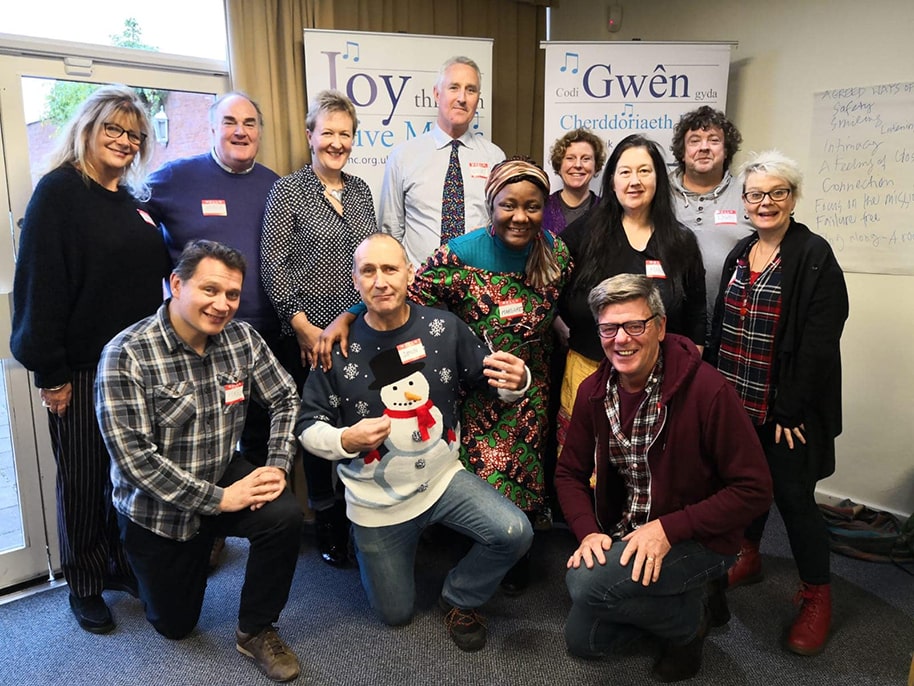Dementia communication training inspires MiHC musicians in Wales
In January 2019, Music in Hospitals & Care received two grants from The Darkley Trust and the Arts Council of Wales to provide Dementia specific communication training days for our musicians working in Wales. Throughout the Spring we organised three training events, which took place in Wrexham, Swansea and Cardiff.
The purpose of the training was to provide musicians with a deeper understanding of people living with Dementia, which in turn would have a positive effect during their live music sessions. We wanted the musicians to recognise that good communication is central to a person’s wellbeing and that more meaningful interaction during a performance is more likely to create a more positive experience.
The three sessions were led by communication and Dementia specialist Sarah Reed, founder of Many Happy Returns and the successful Chatterbox Cards, which help aid reminiscence for people living with Dementia.
In total, 26 musicians took part in the training, including artists who work with the charity, but also two students; one from the Royal Welsh College of Music & Drama and one from Cardiff University. The course in Wrexham also attracted musicians from Manchester.
Feedback
The feedback from all three workshops was overwhelmingly positive. Comments collected immediately after the training included:
“Good open discussions. Enthusiastic, knowledgeable workshop leader sharing expertise.”
“Excellent ideas and exercises to try. Sarah was so inspiring.”
“It was interesting to learn about short-term memory loss but long-term memory growth – I didn’t know that before…”
Six months after the training, Music in Hospitals & Care conducted further feedback to evaluate the long-term impact of the skills learnt. In summary, 80% of participants said their confidence when performing for and communicating with older audiences living with dementia had grown, and 38% said they felt “a lot more confident” as a result. 25% said their choice of repertoire and content had been most affected by the training, and 87.5% of respondents reported that they now use their improved knowledge of dementia during their performances.
Summary of main points:
- Listening to music is amongst the most rewarding experiences for humans. There is evidence to show a changes in emotional arousal, changes in heart-rate, respiration, body temperature and blood volume pulse, when listening to music.
- ‘Reminiscence Bump’ – the period between ages 5 and 30, where the storage of memories is richest. Musicians who can refer to anything that happened to their audiences between these crucial years can be the most effective for increasing reminiscence.
- Understanding a person’s background, culture and ‘Life Story’ can have a huge impact on increasing meaningful interaction. Starting conversations with statements such as “Tell me about a door/table from your childhood” can stimulate memories and aid more meaningful conversation.
- Body language is important – the ‘Cake Slice’ approach in ensuring that the audiences feels comfortable, safe and respected.
Music in Hospitals & Care hosts regular Musicians Days across the UK, giving our freelance musicians an opportunity to learn, share their experiences and network. You can find out more about our musicians here.
A huge thank you to Sarah Reed, Arts Council Wales and the Darkley Trust for their involvement throughout the year. The training could not have taken place without this support.
Make a donation
Please give today to help improve the health and wellbeing of children and adults through the healing power of live music.

